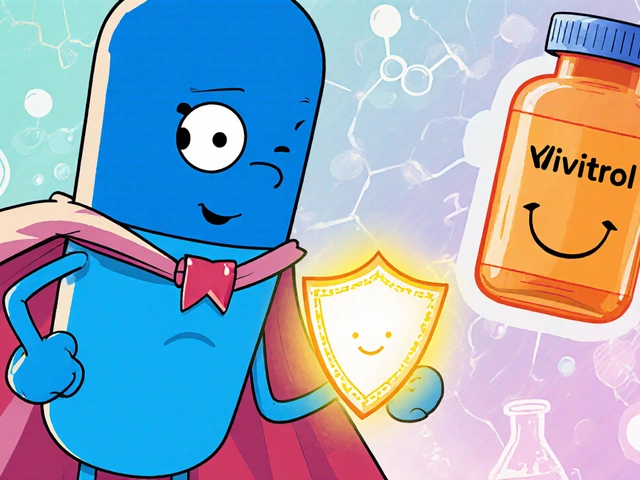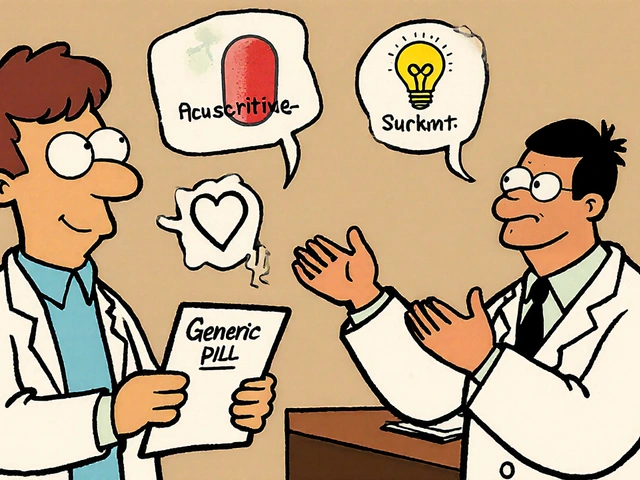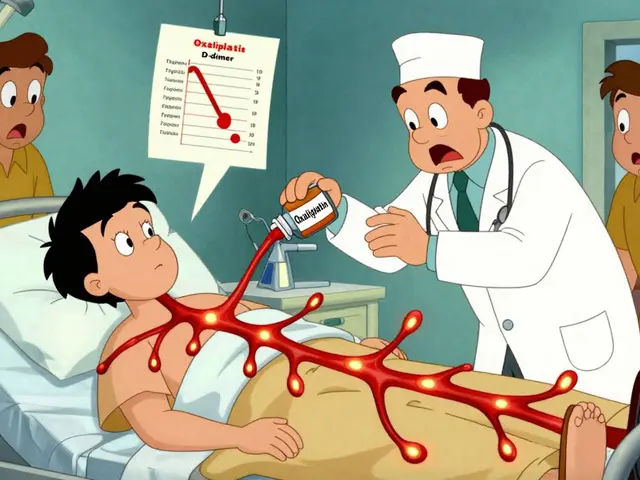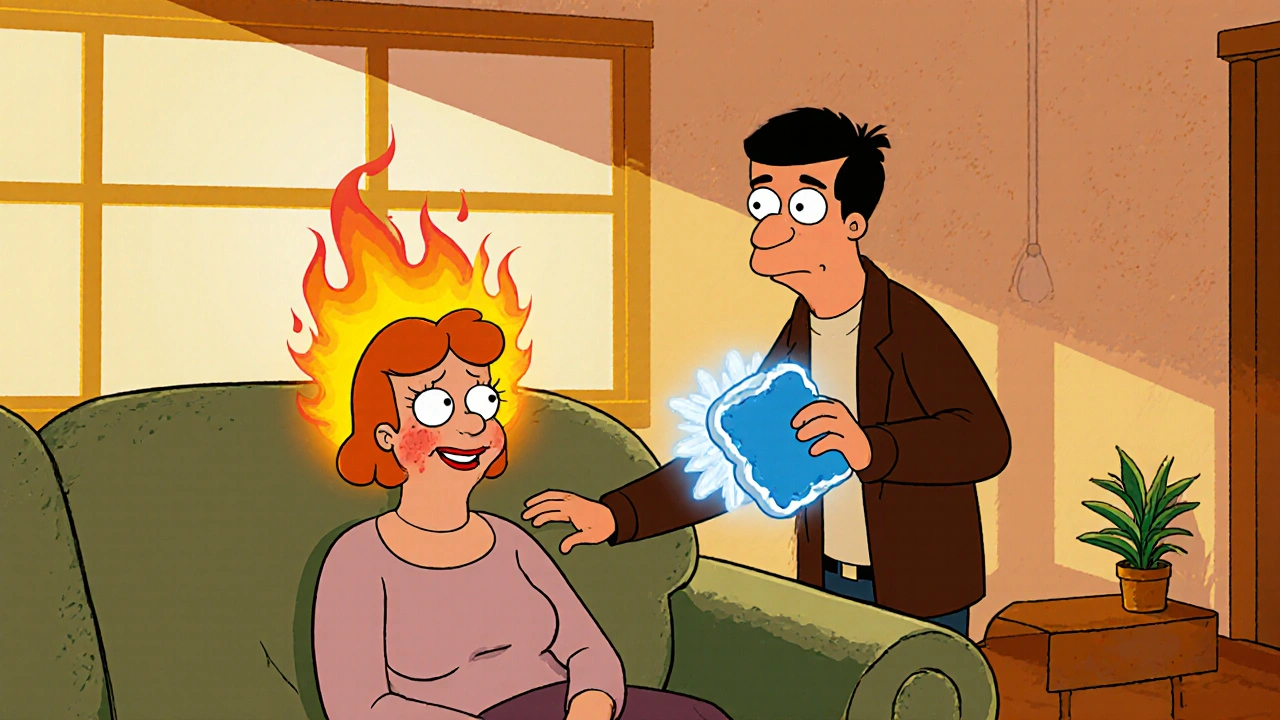
Menopause Relationship Coping Calculator
How to Use This Tool
Answer 3 questions about your situation. We'll recommend the most suitable coping strategies based on your responses.
When menopause hits, it’s not just the body that feels the shift - the whole partnership can feel the tremor. Suddenly, hot flashes, mood swings, and sleep hiccups creep in, and couples often wonder how to keep the love alive while the body rewrites its rules.
Understanding Menopause
At its core, Menopause is a natural phase in a woman’s life when the ovaries stop releasing eggs and estrogen levels drop sharply. It typically arrives between ages 45 and 55, marking the end of menstrual cycles. Common signs include irregular periods, hot flashes, night sweats, mood fluctuations, and sleep disturbances. While the timeline varies, the hormonal roller coaster can last several years, influencing both physical comfort and emotional balance.
Emotional Landscape: Mood Swings and More
One of the most talked‑about symptoms is Mood swings. A sudden surge of irritability can appear out of nowhere, often linked to falling estrogen, which plays a role in serotonin regulation. Anxiety, low‑grade depression, and a sense of vulnerability may also surface, making everyday conversations feel more charged.
Sleep disturbances, another frequent guest, compound the emotional strain. Night sweats force a wake‑up call, literally, and fragmented sleep erodes patience and empathy. When a partner sees the exhaustion, they might misinterpret it as disinterest rather than a physiological side‑effect.
Physical Intimacy: The Unseen Shifts
Physical closeness can feel unpredictable. Hot flashes cause sudden heat spikes that can be uncomfortable mid‑intimacy, while vaginal dryness-caused by reduced estrogen-may lead to discomfort during sex. These changes often prompt feelings of self‑consciousness, and partners may wonder how to respond without making the situation awkward.
Sexual health doesn’t have to decline forever. Simple steps like using water‑based lubricants, maintaining open dialogue about comfort levels, and exploring different forms of affection can keep the romance alive while the body adjusts.
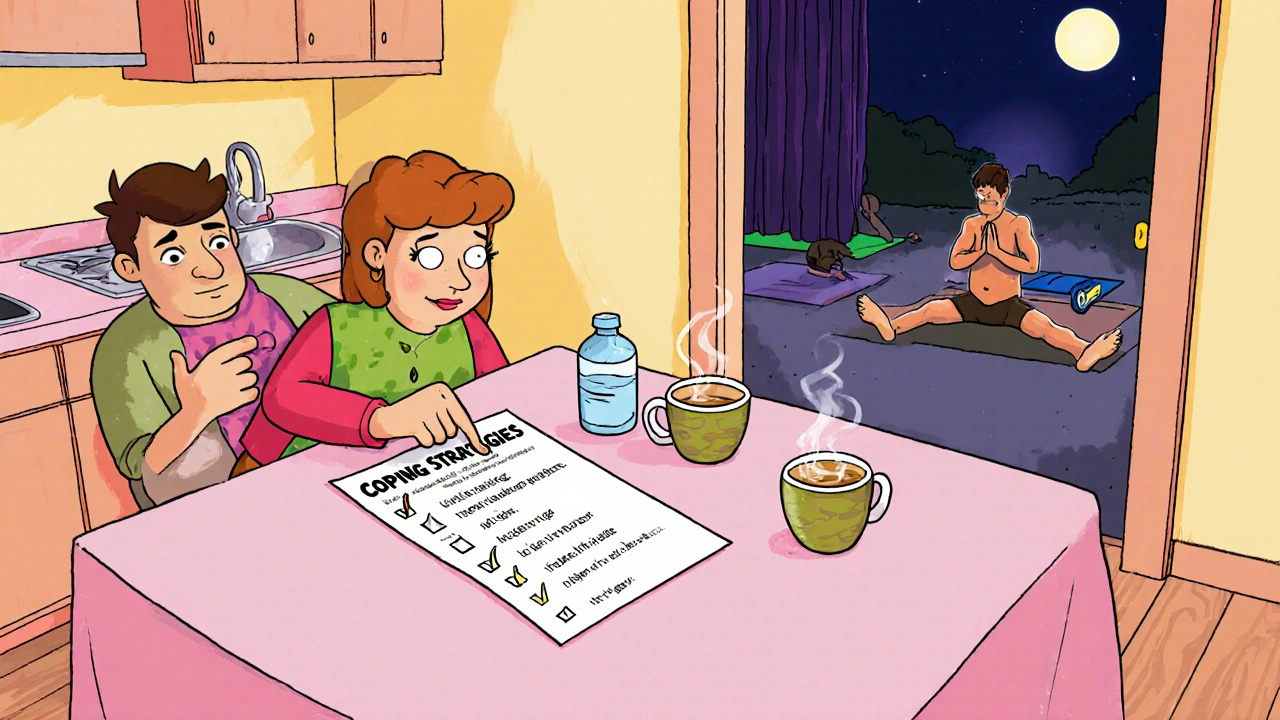
Communication is the Bridge
Enter Communication. The single most effective tool for weathering menopause together is honest, compassionate conversation. Rather than assuming the other knows what’s happening, set aside regular “check‑in” moments. Use “I” statements-"I feel flushed and it’s hard to focus"-instead of blaming language.
Partner support doesn’t mean solving the symptoms; it means acknowledging them. Simple gestures-a cool compress at the foot of the bed, a warm hug during a flash, or a glass of water-show empathy. When both sides feel heard, the emotional temperature drops, and the partnership steadies.
Practical Coping Tools for Couples
Below is a quick‑look comparison of four proven coping strategies. Pick the one that fits your lifestyle, or blend them for a custom plan.
| Strategy | What it addresses | Typical benefit | Potential downside |
|---|---|---|---|
| Open Communication | Emotional & physical symptoms | Improved understanding, reduced tension | Requires time and willingness to be vulnerable |
| Professional Counseling | Relationship strain, anxiety, depression | Neutral third‑party perspective, coping skills | Cost, finding the right therapist |
| Hormone Therapy | Hot flashes, vaginal dryness, mood swings | Rapid symptom relief for many women | Medical side‑effects, requires doctor supervision |
| Lifestyle Changes | Sleep, weight, overall wellbeing | Long‑term health boost, natural symptom mitigation | Consistency needed, gradual results |
Mixing strategies often works best. A couple might start with regular communication, add a low‑dose Hormone therapy plan recommended by a doctor, and sprinkle in weekly walks to improve sleep quality.

When to Seek Professional Help
If symptoms feel overwhelming-persistent sadness, severe insomnia, or a drop in libido that strains the relationship-consider a professional opinion. A gynecologist can evaluate hormone levels and discuss treatment options. Meanwhile, a therapist specializing in couples can help re‑frame any emerging resentment into teamwork.
Key signs to act on:
- Feeling detached from your partner for more than a few weeks
- Experiencing panic attacks or major depressive episodes
- Night sweats that disrupt both partners' sleep regularly
- Physical discomfort that makes intimacy consistently painful
Early intervention prevents small cracks from turning into lasting fissures.
Real‑Life Stories: Couples Who’ve Made It Through
Anna, 52, noticed her mood dip right after her periods stopped. She invited her husband, Mark, to a doctor’s appointment where they learned about Hormone therapy. Together they set a weekly “talk‑time” slot, swapping phones for a cup of tea and honest feelings. Within months, Mark reported feeling less frustrated, and Anna’s hot flashes softened.
In another case, Priya and Sameer, both in their early 50s, hit a rough patch when Priya’s sleep was shattered by night sweats. They tried a gentle yoga routine before bed, added a cool room temperature, and scheduled a monthly check‑in to discuss any lingering tension. The simple act of acknowledging the problem turned a nightly battle into a shared project.
These snapshots show that the mix of medical, emotional, and lifestyle tools-tailored to each couple-makes the transition smoother.
Quick Checklist for Couples
- Identify the most disruptive symptoms (e.g., hot flashes, mood swings).
- Schedule a weekly, distraction‑free conversation.
- Research medical options like Hormone therapy with a trusted clinician.
- Incorporate at least one lifestyle habit that boosts sleep (cool bedroom, herbal tea, no screens an hour before bed).
- If tension persists, book a session with a couples therapist.
How can I talk to my partner about menopause without sounding like I’m complaining?
Start with "I" statements that describe your experience, such as "I feel extra warm tonight and it’s hard to sleep." Keep the tone factual, and invite your partner to share how they feel too. Setting a regular, low‑pressure check‑in time helps both sides prepare.
Are there non‑hormonal ways to reduce hot flashes?
Yes. Strategies include dressing in layers, using a handheld fan, sipping cold water, practicing deep‑breathing exercises, and incorporating soy‑based foods. Some women find that regular aerobic activity lowers flash frequency.
What role does sleep play in managing relationship stress during menopause?
Sleep is the body’s reset button. Poor rest amplifies irritability and reduces patience, making minor disagreements feel larger. Prioritizing a cool, dark bedroom and a consistent bedtime can improve mood for both partners.
When should a couple consider couples therapy during menopause?
If arguments become frequent, if either partner feels isolated, or if symptoms start affecting intimacy, a therapist can provide tools to communicate effectively and rebuild connection.
Can lifestyle changes really offset the need for medication?
For many women, regular exercise, a balanced diet, stress‑reduction techniques, and good sleep hygiene lessen severity. However, every body is different; some still benefit from medication after trying lifestyle tweaks.

